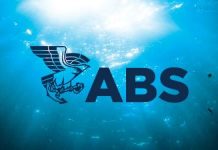
The California-based marine technology startup Boundary Layer Technologies has unveiled plans for the launch of its zero-emissions hydrofoiling container ship, ARGO, which is anticipated by the third quarter of 2024.
The company intends to operate this kind of vessel to establish a zero-emission shipping service in intra-Asia trade and believes that it could replace air freight as the ARGO ship has a cruise speed of 40 knots, which is almost twice that of conventional container ships.
Additionally, this performance is expected to allow door-to-door transit times only 15 to 24 hours slower than air freight, but at 50% of the price, according to Boundary Layer Technologies.
The speed and price advantages are enabled by the company’s hydrofoil technology, which makes ARGO travel at 40 knots while using a fraction of the fuel that a conventional vessel would need when travelling at the same high speed.
With a length of 33.5 metres and a capacity of 20 TEU, ARGO is considerably smaller than regular container vessels, but Ed Kearney, CEO and founder of Boundary Layer Technologies, believes it could be the key to solving many supply chain issues.
“ARGO’s small size and payload capacity cuts dwell time to only two hours instead of three days, and offers the flexibility of docking virtually anywhere,” explained Kearney, who went on to add that this allows ARGO to bypass heavily congested ports “while also competing with air freight transit times.”
Furthermore, the zero-emissions hydrofoiling boxship disposes of a gross payload capacity of 200 tons, a range of up to 1,500 NM, and it is powered by green hydrogen and fuel cells, which are stored as a liquid inside the ship’s two hulls. As for the hydrofoil, it is a submerged wing device used to lift the hull from the water to reduce drag.
“From what customers are telling us, the combination of a zero-emission transport solution that can also cut air freight spend would be a gamechanger for helping them meet emissions reduction targets while addressing rising costs from supply chain disruptions,” said Per Karsten Stolle, strategic advisor to Boundary Layer Technologies.
The company has already completed the development of key pieces of ARGO’s technology stack and is on track to perform full-scale subsystem tests by the end of 2023, while it is also selecting partners for an intra-Asia service to ship finished goods and components for major electronic manufacturers in the region by the end of 2024.
Meanwhile, the Californian startup is also planning to launch a larger vessel on a transpacific service for which it has a US$180 million Letter of Intent from the digital freight forwarder Flexport, according to a statement.










